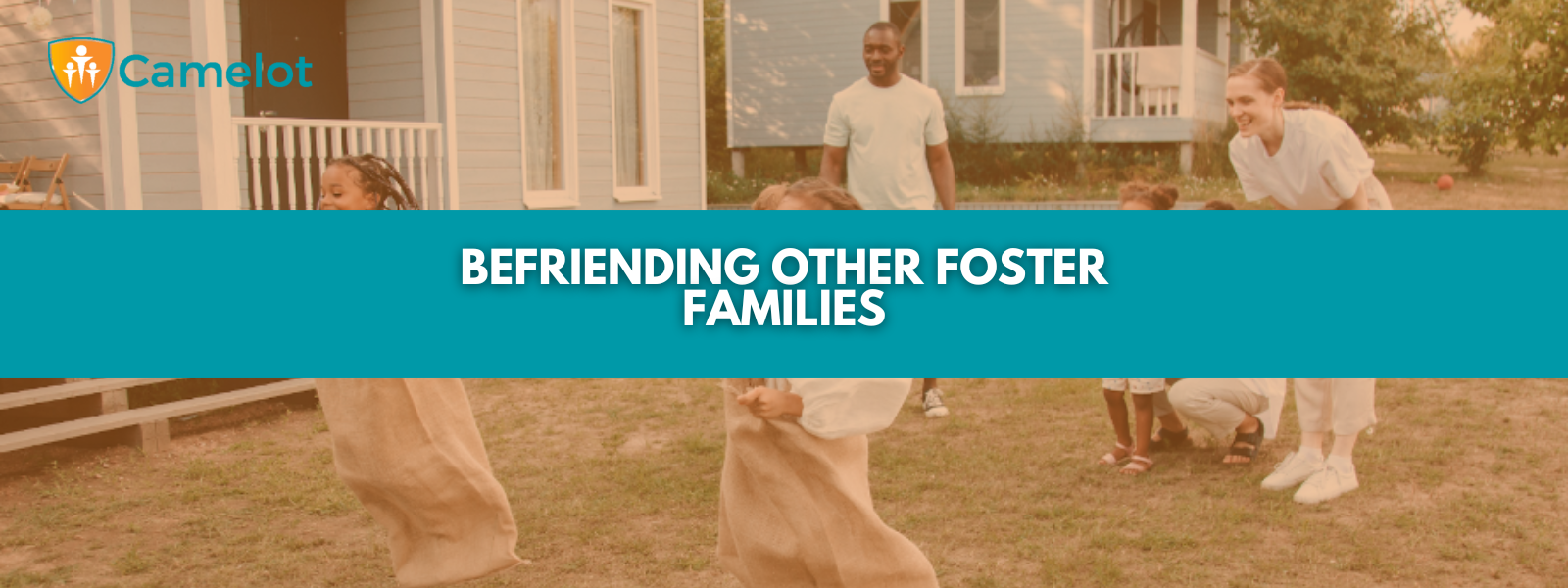Expert-Approved Tips on Making Your Home Foster Care-Ready
Expert-Approved Tips on Making Your Home Foster Care-Ready

If you are thinking of becoming a foster parent, congratulations! It’s a noble thought and a rewarding experience. But, like all things new, the beginning can be tricky if you are unprepared. After all, inviting a new member into your home when it is not yet foster-ready may invite feelings of anxiety in the foster child.
Often, foster parents do not get enough time to prep their homes. Because of this, if the foster parent is not prepared, the child’s first impression of their new home may not be the best. This may lead to uncertainty for all.
Luckily, there are helpful tips and tricks to make the transition seamless and friction-free. Let’s look at some tips you can keep in mind when making your home foster-ready.
Keep Your Home Neat, Clean, and Organized
When it comes to fostering kids, the first impression is important. If you want the child to feel at ease and safe, you need to keep your home tidy and organized. A clean and organized environment will make the child feel secure and can make things easier to find. Here are a few ways to achieve this:
- Do not spend too much effort redecorating. Instead, focus on getting rid of the clutter.
- Do not just focus on cleaning the bedroom: clean the entire house. This helps to ensure the child feels welcomed in every possible way.
- Declutter and get rid of things that are not serving any purpose in your home.
- Keep things organized to make it easier for the child to adapt. They should be able to find things independently instead of always depending on you. This strategy is also useful for making the child feel like an active family member (as opposed to feeling like an outsider).
- Ensure you do all of your security checks before the arrival of the child. Look into the home's smoke and fire alarms and ensure they work properly to maximize safety.
- If you are going to welcome a foster child that is very young, you must ensure you have all the resources to take care of the child. Make sure to baby-proof the home and make other necessary changes to accommodate the child.
Be careful not to over-organize as this may cause the child to feel reluctant or fearful about being in the house. There is a fine line between clean and overly structured; try to look at the space as an outsider to help make it warm and welcoming to all.
Ensure That the Bedroom Is Properly Set Up
The first place the child may end up spending a lot of their time is in the bedroom. So, it is critical that the space feels safe, secure, and comfortable. Here is how you can add a personalized touch to the space:
- Start by decorating the space as per the age and needs of the child. For example, for younger children, you can add a play corner, coloring books, or storybooks to make the room look playful and lively. You can also leave space for the child to add their own element to the room. This will help them create their own space and feel welcomed.
- If the child is older, let them decorate the room as they see fit. This will make them comfortable and allow them to adapt to the change in their life more smoothly. This small tip can help them to add their personality to the room, which in turn will let you learn more about them as well. As a rule of thumb, add a sturdy desk and chair to the room. Also, you can ask the child to pick the room's color so that the space feels more like home for them. Additionally, check with the child while making decisions to make them feel like a part of the family in a larger sense.
- Have a section for the children to keep their clothes. If the child is sharing the room, they need a dedicated space for their belongings.
- If the social workers allow, you can also provide the child with a phone or a tablet. Make sure to inquire about whether or not they will be allowed to keep electronics or not.
- If the child is going to share the room with your biological kids, you need to pay special attention to keeping everything fair. This is very important as you will have to maintain a fine balance between the emotions of all of your children. If you do not maintain the balance, you risk letting the children feel neglected or favored.
Do Not Keep Medicines, Alcohol, or Other Harmful Chemicals Out in the Open
Children can sometimes be mischievous, and they sometimes do not understand the consequences of their actions. As a foster parent, it is your duty to keep them safe and sound. A big part of that is keeping harmful substances, such as medications, cleaning supplies, and alcohol out of their reach.
Remember that children are also naturally curious. You need to keep the stuff locked away, so it is out of the child's reach. Some of the other items you must keep away from include home products that can cause harm to the children if not monitored while using.
Pack Away Items of Sentimental Value
As mentioned earlier, children are always eager to analyze new things. If you have items of emotional value to you, make sure to pack them away. You can include items that are fragile on this list too.
Why is this necessary? Sometimes, children may need time to adjust to a new environment and may accidentally break or destroy things. If something of value gets damaged, it can lead to high tensions. Because of this, playing safe is advisable instead of feeling sorry later.
Shop for the Basic Supplies and Keep Them Ready
From the moment the child steps into your home, they must feel safe and provided for. While building a sense of routine and familiarity can take time, you can always accelerate the process by ensuring that you are providing the children with everything they could need. For example, stocking the child's bathroom with essentials such as toothpaste, toothbrush, hairbrush, and shampoo is important. Make sure to factor in the child's age and gender as well. Another thing to keep stocked with all the basic snacks and ingredients is your pantry so that the child never gets too hungry. You cannot go wrong with fries and cheese as well, so start small and think basics.
Invest Your Time and Effort in Getting to Know the Child
If the foster care agency allows it, spend time doing your homework to understand the child's likes and dislikes. You can also ask the social worker the right kind of questions. Ideally, try to dig deeper and understand more about the child's family situation and upbringing to make the transition easier.
Other Tips to Remember
- Ensure the items you keep have a sensible flow around the room. Do not try to be super innovative. Your child needs a sense of familiarity.
- Create a nice and cozy reading nook for your child. Irrespective of their age, children like to read. This nook can also double as their safe space. Having a place to “hide”, whether it be from people, schoolwork, or otherwise, helps the house feel like a home.
- When designing the bedroom, keep it simple and straightforward. You can add a simple theme and try to keep things neutral-colored. When it comes to your bedding, walls, and other accessories, you can experiment with them and keep them playful.
- Whether designing the room or making a personalized corner for the child, patience is key. Do not rush into things. As you learn more about the child, you can make additions and tweaks along the way. For example, you can get more information about the child's specific interests and incorporate elements in the room accordingly.
- Pay special attention to the hygiene products your child needs depending on their nationality. You must factor in the child's cultural context, and educate yourself as needed.
- You must also prepare other family members, particularly children, for when the foster child comes. Encourage them to ask more questions and answer their queries as truthfully as possible.
- Create a shift in your mental mindset of certain changes that you may come face to face with along the way. A little flexibility and patience go a long way.
- Work on the introductions, as they play a key role in creating a lasting first impression for everyone in the family.
The Final Word
According to estimates, over 213,964 children under the age of 18 entered foster care in the United States at a rate of 3 per 1,000. Clearly, children entering foster care is very much a reality. Take a cue from these tips and kickstart your fostering journey on the right note.
If you are looking to become a foster parent and do not know where to begin, consider contacting the experts at
Camelot Care Center. They provide customized family counseling and foster care services throughout Tennessee. Trained therapists and counselors drive all family counseling and foster care services. In fact, licensed clinicians directly supervise all sessions. For more information,
reach out to us today.





Camelot Care Centers






